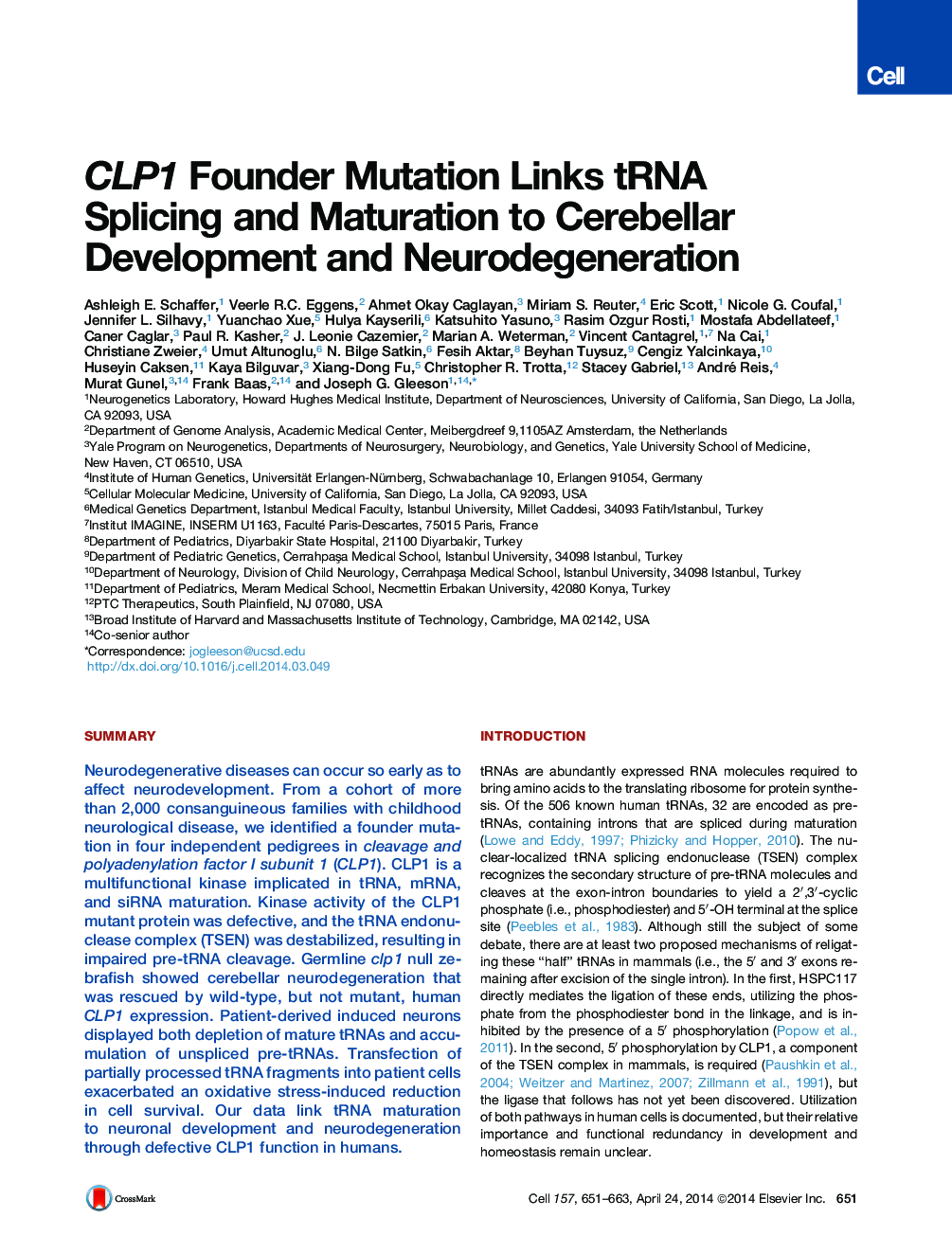| Article ID | Journal | Published Year | Pages | File Type |
|---|---|---|---|---|
| 2035541 | Cell | 2014 | 13 Pages |
•A human CLP1 mutation causes brain and motor neuron degeneration•Mutation impairs kinase activity, nuclear localization, and TSEN complex assembly•Patient iNeurons have accumulated pre-tRNA and reduced mature tRNA•Clp1 mutant zebrafish display p53-dependent neurodegeneration
SummaryNeurodegenerative diseases can occur so early as to affect neurodevelopment. From a cohort of more than 2,000 consanguineous families with childhood neurological disease, we identified a founder mutation in four independent pedigrees in cleavage and polyadenylation factor I subunit 1 (CLP1). CLP1 is a multifunctional kinase implicated in tRNA, mRNA, and siRNA maturation. Kinase activity of the CLP1 mutant protein was defective, and the tRNA endonuclease complex (TSEN) was destabilized, resulting in impaired pre-tRNA cleavage. Germline clp1 null zebrafish showed cerebellar neurodegeneration that was rescued by wild-type, but not mutant, human CLP1 expression. Patient-derived induced neurons displayed both depletion of mature tRNAs and accumulation of unspliced pre-tRNAs. Transfection of partially processed tRNA fragments into patient cells exacerbated an oxidative stress-induced reduction in cell survival. Our data link tRNA maturation to neuronal development and neurodegeneration through defective CLP1 function in humans.
Graphical AbstractFigure optionsDownload full-size imageDownload high-quality image (144 K)Download as PowerPoint slide
